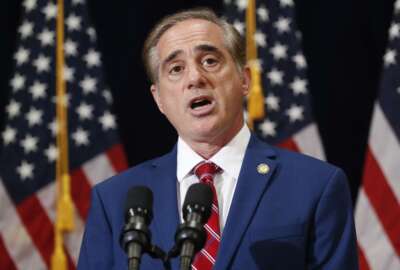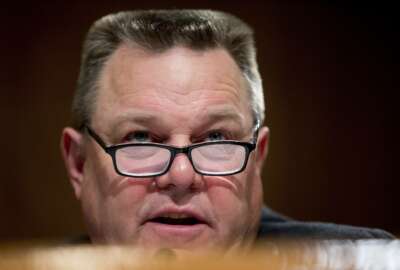

As Congress will soon resume debates over the future of the Veterans Choice Program, the American Federation of Government Employees is urging lawmakers to consider...
As congressional debate over the future of the Veterans Choice Program is set to heat up again in the next few weeks, the American Federation of Government Employees is suggesting that lawmakers, veterans service organizations and the VA itself shift the conversation.
Instead of developing the legislative language that will allow more veterans to see private-sector health providers, AFGE, which represents about 250,000 VA employees, is encouraging lawmakers to also find new solutions to VA’s longstanding challenges.
“We’re about to debate Choice 2.0 in the committee here in the next couple of weeks,” Rep. Julia Brownley (D-Calif.), a member of the House Veterans Affairs Committee, said Thursday during an AFGE panel discussion on veterans health care in Washington. “The Choice program is likely here to stay, but I will say that many of us like myself are advocating very, very hard in any one of these debates that if we are going to invest in Choice, that we need to make at least … an equal investment in the VA to fill these jobs, to build the clinics that need to be built [and] to modernize where we need to modernize.”
Congress in July passed an additional $2 billion in emergency funding for the Veterans Choice Program, which was designed to give both the department and lawmakers more time to develop a more permanent series of changes to Choice.
The legislation also included some provisions designed to help the department more quickly hire medical center professionals, retain high-quality senior executives and accurately track a growing number of vacancies.
Hiring has been one of those frustrating challenges for VA, which has many as 45,000-to-49,000 vacant positions. Department leaders have been lamenting these vacancies for more than a year.
AFGE and some Democrats on the House Veterans Affairs Committee are urging lawmakers to consider enhancements to current VA services, not programs that would send more veterans to receive care outside of the department.
“We have to talk about a sustainable VA, and it’s crucial that we maintain the VA’s role as a coordinator of care,” Rep. Mark Takano (D-Calif.) said Thursday. “Ultimately we cannot be content to merely protect the VA. We also have to be focused on expanding its capacity to meet the growing needs of our veteran-population.”
VA Secretary David Shulkin has described hiring as the “single most challenging thing” at the agency, and lawmakers have said they’ve had to call the department directly to help get possible recruits through the application process.
He’s asked Congress for direct hire authorities to bring on health care professionals of all types more quickly. Current VA authorities only apply to medical center directors, Shulkin said.
“While so much of this debate is centered on who is fired at the VA, the success of the VA is really going to depend on who is hired at the VA,” Takano said.
AFGE said it sees potential in the Strengthening Veterans Health Care Act, which Sen. Bernie Sanders (I-Vt.) introduced in August.
The bill appropriates $5 billion for the department to hire primary care and specialty care physicians, as well as nurses, social workers, mental health professionals and others with no fiscal year deadline. In addition, VA could use the appropriation to maintain current facility leases or begin minor construction projects.
Yet Sanders’ bill differs significantly from other approaches that the House VA committee and other members are taking.
The House Veterans Affairs Committee will hold a legislative hearing next week that would authorize VA to launch a systematic review of its facilities.
If the bill passes the committee, it’ll be the first step in accomplishing what has since been an impossible task — a full and actionable review of the Veterans Affairs Department’s more than 6,000 owned buildings and 1,500 leased facilities that many say are underutilized, outdated and insufficient to meet the modern medical needs of an evolving veteran population.
House VA Committee Chairman Phil Roe (R-Tenn.) has acknowledged that a review is a “complex and emotional issue” but called for a capital asset review and realignment. Democrats on the committee seemed to agree.
Yet AFGE said it’ll oppose such efforts. Joe Flynn, the union’s national secretary-treasurer, said the congressional debates on both the Choice program and a facility review sends a message that lawmakers are interested in privatizing the VA, despite their assertions to the contrary.
“We’re fighting back against efforts to create a DoD BRAC-style commission to close VA hospitals and clinics, not because there are too many facilities or not because they are underutilized but simply because proponents want to send veterans to for-profit providers, ill-equipped to meet their unique needs,” he said.
Copyright © 2025 Federal News Network. All rights reserved. This website is not intended for users located within the European Economic Area.
Nicole Ogrysko is a reporter for Federal News Network focusing on the federal workforce and federal pay and benefits.
Follow @nogryskoWFED



